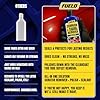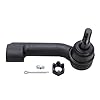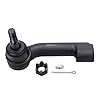Table of Contents
If you’re navigating the aftermath of a car accident, a pressing question likely looms: are car accident settlements public record? The concern is understandable. The details of your injuries, financial losses, and the compensation you receive are deeply personal matters. The straightforward answer is that the vast majority of car accident settlements are not public record. They are private agreements negotiated between parties, often away from the courtroom. However, this privacy has a critical exception: if your case proceeds to a trial and a verdict is reached, that outcome and its details typically do become part of the public domain. This comprehensive guide will demystify the legal landscape, explaining not only the rules of privacy but also the crucial differences between settlements and verdicts, the factors that push a case into the public eye, and the strategic steps you can take to protect your personal information while pursuing the compensation you deserve.
Defining Key Terms: Settlement vs. Verdict
To fully grasp the privacy implications, you must first understand the two primary ways a car accident claim can be resolved. The path your case takes is the single greatest determinant of whether your information becomes publicly accessible.
What is a Car Accident Settlement?
A car accident settlement is a private, out-of-court agreement between the injured party (the plaintiff) and the at-fault party or their insurance company (the defendant) . It is essentially a business negotiation where the defendant agrees to pay the plaintiff a certain sum of money to resolve the claim. In exchange for this compensation, the plaintiff agrees to release the defendant from any further liability related to the accident .
This process is overwhelmingly the most common outcome for car accident claims, with the majority being resolved through negotiation long before a trial is necessary . The details of these negotiations and the final settlement amount are typically known only to the parties involved and their legal representatives.
What is a Court Verdict?
A court verdict is the formal decision issued by a judge or jury at the conclusion of a trial . When settlement negotiations break down and no agreement can be reached, the plaintiff may choose to file a lawsuit and take the case to court. A trial is a public proceeding, and the verdict it produces is entered into the official court record .
Unlike a private settlement, a verdict is a matter of public record. This means that the identity of the parties, the facts of the case, the evidence presented (including medical records and testimony), and the final award amount are accessible to anyone who knows how to request the information .
Table: Settlement vs. Verdict at a Glance
| Aspect | Settlement | Court Verdict |
|---|---|---|
| Process | Private negotiation | Public trial |
| Decision Maker | Parties and their attorneys | Judge or jury |
| Privacy Level | High; details remain confidential | Low; details become public record |
| Time to Resolution | Typically faster (months) | Typically slower (can take years) |
| Cost | Generally lower (no court costs) | Generally higher (court fees, extensive preparation) |
| Control Over Outcome | Parties have direct control | Outcome is determined by the court |
| Finality | Usually final and binding | Can often be appealed, extending the process |
The General Rule: Settlements Are Private
The legal system encourages the private resolution of disputes, and this principle strongly applies to car accident claims. The privacy of an out-of-court settlement offers significant benefits for both the person injured and the at-fault party.
The Nature of Private Agreements
A settlement is fundamentally a contract. Because it is negotiated and executed without the direct involvement of the court system, it is not automatically filed with the clerk of courts or entered into a public docket . There is no centralized government database where car accident settlements are recorded for public viewing . Your agreement, including the financial terms, remains a confidential matter between you, the other driver, and your respective insurance companies or lawyers.
The Role of Confidentiality Clauses
To further bolster privacy, parties often include a confidentiality clause or non-disclosure agreement (NDA) as a specific term of the settlement . This legally binding provision contractually obligates all parties to keep the terms of the agreement, especially the amount paid, secret. Violating this clause can lead to legal penalties, including a lawsuit for damages. An attorney can advise you on whether requesting such a clause is appropriate for your situation.
The Exception: When Car Accident Outcomes Become Public
While the private settlement is the norm, there are specific pathways through which information about your car accident can enter the public sphere. Understanding these exceptions is key to managing your expectations and protecting your privacy.
The Public Nature of Court Verdicts
As established, if your case goes to trial and results in a verdict, that verdict is public record . This transparency is a cornerstone of the American judicial system, intended to ensure that justice is administered fairly and openly. The public can typically access:
- The names of the parties involved
- The official complaint and other filed documents
- A summary of the evidence presented
- The final judgment and award amount
High-Profile Cases and Media Attention
In cases involving serious injuries, public figures, or unusual circumstances, the media may take an interest . News outlets often report on verdicts obtained in court, and sometimes, if details of a settlement leak or are voluntarily shared, they may report on those as well . High-profile accidents are more likely to be covered by local news upon their occurrence, and any subsequent trial will only amplify that attention.
Legal Databases and Publications
The outcomes of trials, especially those with significant verdicts, are often compiled and published in legal databases like VerdictSearch, as well as in attorney publications and newsletters . Law firms and legal professionals use these resources to research case values and legal trends. While these databases primarily focus on verdicts, they may sometimes include information on settlements that were disclosed through certain legal proceedings .
Key Factors That Determine If Your Case Goes to Trial
Given that a trial is the main event that makes your information public, it’s helpful to understand what forces can push a case toward the courtroom. Most cases settle, but several common disputes can lead to an impasse in negotiations.
Disputes Over Fault and Liability
The most fundamental conflict arises when the insurance company for the at-fault driver disputes that their policyholder was responsible for the accident . If they deny liability altogether or argue that you were partially or fully to blame, it can be impossible to reach a settlement. In such scenarios, filing a lawsuit may be the only way to have a neutral party (a judge or jury) determine fault.
Disagreements on the Value of Your Claim
Even when liability is clear, the insurance company may acknowledge that their driver was at fault but dispute the severity of your injuries or the value of your losses . They might argue that your medical treatment was excessive, that your injuries are not as debilitating as you claim, or that your calculation for lost wages or pain and suffering is inflated. If the gap between their offer and your demand is too wide, a trial may be necessary to resolve the difference.
Low-Ball Settlement Offers and Bad Faith
Sometimes, an insurance company may make a settlement offer that is far below what your claim is objectively worth. This is known as a “low-ball” offer. If the insurer refuses to engage in good-faith negotiations, a lawsuit demonstrates that you are serious about pursuing fair compensation and can often prompt a more reasonable settlement offer as the trial date approaches.
Pursuit of Punitive Damages
In rare cases involving particularly egregious conduct—such as drunk driving, street racing, or intentional harm—your attorney may advise seeking punitive damages . Unlike compensation for your direct losses (medical bills, etc.), punitive damages are intended to punish the defendant for their reckless behavior and deter others from similar conduct. Because insurance policies often exclude coverage for punitive damages, and because they are highly contentious, these cases are far more likely to proceed to trial.
Weighing Your Options: Settlement vs. Trial
The choice between accepting a settlement and proceeding to trial is a significant one, with profound implications for your privacy, finances, and emotional well-being. Here is a balanced look at the advantages of each path.
Advantages of Settling Out of Court
- Privacy Protection: This is the most significant benefit for many. Keeping the details of your injuries, finances, and personal life out of the public record is a powerful reason to settle .
- Faster Resolution: A settlement can be reached in a matter of months, while preparing for and going through a trial can take a year or more . This allows you to receive compensation and move on with your life more quickly.
- Certainty and Control: A settlement provides a guaranteed, known amount of money. A trial is inherently unpredictable; a jury could award you millions or nothing at all . By settling, you maintain control over the outcome.
- Lower Cost: Litigation is expensive. Settling out of court avoids substantial court fees, costs for expert witnesses, and other trial-related expenses, which means you get to keep a larger portion of your recovery .
Potential Advantages of Going to Trial
- Potential for a Larger Award: In cases involving severe, permanent injuries or outrageous conduct, a jury may award significantly more money than an insurance company was willing to offer in settlement, particularly when punitive damages are a possibility .
- Public Accountability: A verdict serves as a public record of the defendant’s negligence . For some plaintiffs, this public acknowledgment of wrongdoing is an important part of achieving justice, especially if the case has the potential to effect broader change or warn others.
- The Only Path Forward: When an insurance company refuses to make a fair offer, trial is the only remaining option to pursue the compensation you need and deserve.
Protecting Your Privacy After a Car Accident
Beyond the decision to settle or go to trial, there are proactive steps you can take to safeguard your personal information in the wake of an accident.
Be Mindful of Social Media
In today’s connected world, this is critical. Insurance adjusters and defense attorneys routinely check the social media profiles of claimants. Avoid posting about your accident, your injuries, or your physical activities. Even an innocent photo of you at a social gathering can be misconstrued as evidence that your injuries are not serious.
Discuss Confidentiality with Your Attorney
If you are working with a lawyer, express your desire for privacy upfront. They can make strategic decisions throughout the process to minimize the exposure of your personal information and can insist on a confidentiality clause as part of any settlement agreement .
Understand What the Police Report Contains
While the settlement itself is private, the initial police report filed at the scene of the accident is generally considered a public record . This report contains details like the date, time, and location of the crash, the parties involved, and the officer’s preliminary assessment of fault. However, personal information like phone numbers and addresses may be redacted when released .
Conclusion: Navigating the Crossroads of Compensation and Privacy
So, are car accident settlements public record? The resounding answer is that they are overwhelmingly private, confidential agreements. The public nature of court verdicts, however, creates a clear crossroads for anyone pursuing a claim. Your journey to compensation is deeply personal, and the path you choose—settlement or trial—will significantly impact the privacy you maintain throughout the process.
Understanding this fundamental distinction empowers you to make informed decisions aligned with your priorities. For most, the benefits of a faster, more certain, and private settlement outweigh the unpredictable and public nature of a trial. By working with an experienced attorney, you can vigorously pursue the full and fair compensation you need to recover, all while taking proactive steps to ensure that your private life remains just that—private. Your focus should be on healing and rebuilding, and the legal process, when navigated wisely, can support that goal without unnecessary public exposure.





























































